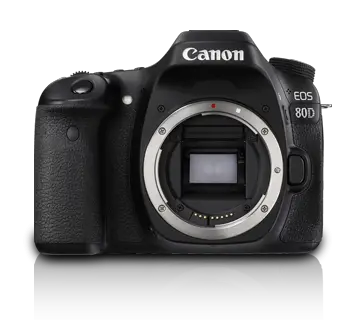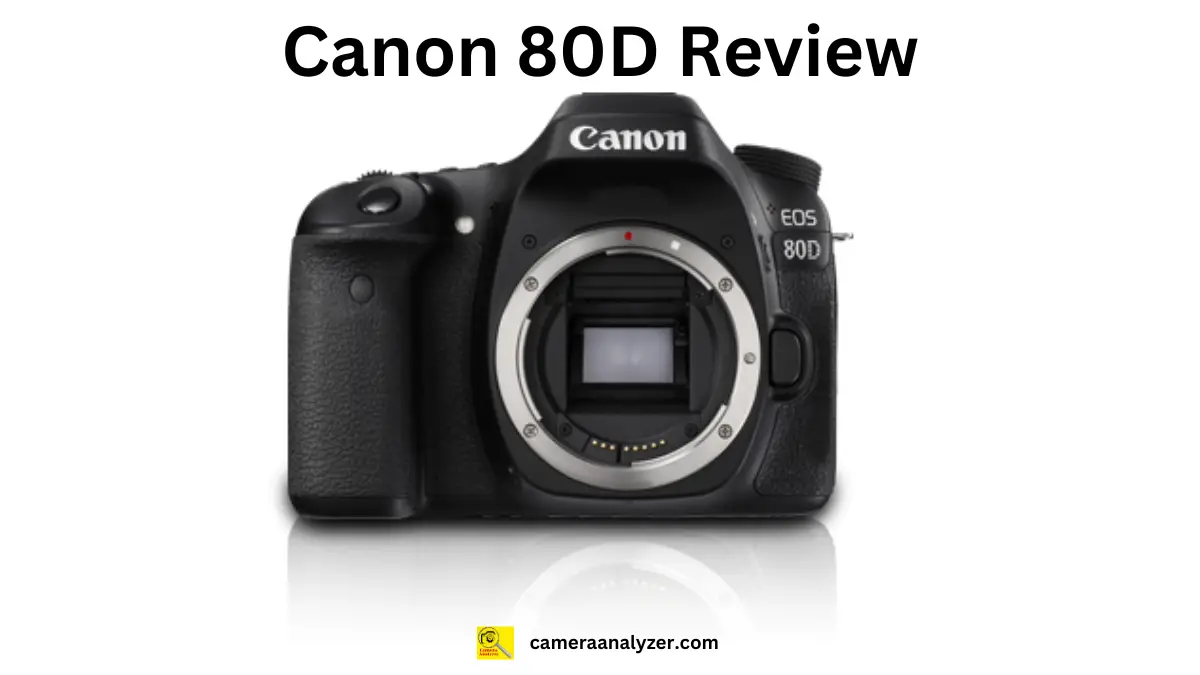The Canon 80D is not a full-frame camera. It features an APS-C sensor, which is smaller than a full-frame sensor. This makes it part of Canon’s line of crop-sensor DSLR cameras, designed to offer a balance of performance and affordability for both enthusiasts and semi-professional photographers.
Understanding the Canon 80D and Its Capabilities
When choosing a camera, one of the most common questions photographers have is whether a particular model is a full-frame camera. This article aims to provide a comprehensive answer to the question: “Is a Canon 80D a full-frame camera?” and delve into the features and capabilities of the Canon 80D, comparing it with full-frame models to help you understand its place in the camera market.
What is a Full Frame Camera?
A full-frame camera features a sensor that is equivalent in size to a 35mm film frame, measuring approximately 36mm x 24mm. Full-frame sensors offer several advantages, including better low-light performance, shallower depth of field, and a wider field of view compared to smaller sensors. These benefits make full-frame cameras popular among professional photographers and enthusiasts who demand the highest image quality.
Overview of the Canon 80D
The Canon 80D, released in 2016, is a popular DSLR camera aimed at enthusiasts and semi-professional photographers. It is part of Canon’s APS-C lineup, featuring a sensor smaller than a full-frame sensor. The Canon 80D is known for its versatile performance, excellent autofocus system, and solid build quality, making it a reliable choice for various photography genres.
Comparing APS-C and Full Frame Sensors
| Feature | APS-C Sensor (Canon 80D) | Full Frame Sensor |
| Sensor Size | 22.3mm x 14.9mm | 36mm x 24mm |
| Crop Factor | 1.6x | 1x (no crop factor) |
| Field of View | Narrower field of view | Wider field of view |
| Low-Light Performance | Good, but not as good as full-frame | Superior low-light performance |
| Dynamic Range | Decent dynamic range | Greater dynamic range |
| Depth of Field | Deeper depth of field | Shallower depth of field |
| Size and Weight | Generally smaller and lighter | Typically larger and heavier |
| Cost | More affordable | Generally more expensive |
You can find more details about APS-C vs Full-frame sensors.
Sensor Size and Its Impact on Photography
APS-C Sensor in the Canon 80D
The Canon 80D is equipped with an APS-C sensor, measuring approximately 22.3mm x 14.9mm. APS-C sensors are smaller than full-frame sensors, leading to a crop factor of 1.6x. This means that the field of view of a lens on an APS-C camera is narrower than it would be on a full-frame camera, effectively increasing the focal length.
Full Frame Sensor
Full-frame sensors, as mentioned earlier, are larger and provide several advantages. They capture more light, resulting in better low-light performance and greater dynamic range. The larger sensor size also allows for a shallower depth of field, creating a more pronounced background blur, which is often desirable in portrait photography.
Key Features of the Canon 80D
Despite not being a full-frame camera, the Canon 80D boasts several impressive features that make it a strong contender in the APS-C market:
1. 24.2 Megapixel APS-C CMOS Sensor
The Canon 80D features a 24.2-megapixel APS-C CMOS sensor, delivering high-resolution images with excellent detail and clarity. This sensor size is ideal for a wide range of photography styles, from landscapes to portraits.

2. Dual Pixel CMOS AF System
One of the standout features of the Canon 80D is its Dual Pixel CMOS AF system, providing fast and accurate autofocus in both stills and video modes. This system is particularly beneficial for tracking moving subjects and achieving smooth focus transitions during video recording.
3. 45-Point All Cross-Type AF System
The 80D’s autofocus system includes 45 cross-type points, ensuring reliable focus performance across the frame. This makes it easier to track and capture subjects, even in challenging conditions.
4. DIGIC 6 Image Processor
The DIGIC 6 image processor powers the Canon 80D, enabling fast processing speeds, improved noise reduction, and excellent image quality. This processor also supports continuous shooting at up to 7 frames per second, which is ideal for capturing fast action.
5. Full HD 1080p Video Recording
The Canon 80D is capable of recording Full HD 1080p video at up to 60 frames per second. It also offers various video features, including manual control over exposure, microphone, and headphone jacks, and time-lapse recording.
6. Built-in Wi-Fi and NFC
Connectivity options like built-in Wi-Fi and NFC allow for easy sharing of images and remote camera control via compatible smartphones and tablets. This feature is particularly useful for social media sharing and remote shooting.
7. Vari-Angle Touchscreen LCD
The 3.0-inch vari-angle touchscreen LCD provides flexible shooting angles and intuitive touch controls. This is especially useful for composing shots from high or low angles and navigating the camera’s menu system.
Performance and Image Quality
The Canon 80D delivers impressive performance and image quality, making it a versatile choice for various photography styles. Here are some key aspects of its performance:
Image Quality
The 24.2-megapixel sensor of the Canon 80D produces sharp, detailed images with accurate colors. The camera’s dynamic range is good, allowing for effective recovery of highlights and shadows during post-processing. While it may not match the dynamic range of full-frame sensors, the 80D still performs admirably in most shooting conditions.
Low-Light Performance
Thanks to the DIGIC 6 image processor and the APS-C sensor, the Canon 80D handles low-light situations well. It offers an ISO range of 100-16,000 (expandable to 25,600), providing flexibility for shooting in various lighting conditions. While higher ISO settings can introduce noise, the 80D’s noise reduction capabilities help maintain image quality.
Autofocus Performance
The Dual Pixel CMOS AF system and 45-point cross-type AF system work together to deliver fast and accurate autofocus. This makes the Canon 80D suitable for capturing fast-moving subjects in sports, wildlife, or street photography. The autofocus performance in live view mode is particularly impressive, offering smooth and reliable focus transitions.
Video Quality
The Canon 80D’s video capabilities are another strong point. It can record Full HD 1080p video at up to 60 frames per second, with options for various frame rates and compression settings. The camera’s Dual Pixel CMOS AF system ensures smooth and accurate focus during video recording, while the vari-angle touchscreen LCD allows for easy framing and monitoring.
Lenses and Compatibility
One of the advantages of the Canon 80D is its compatibility with a wide range of lenses and accessories. Here are some key points to consider:
EF and EF-S Lenses
The Canon 80D is compatible with both EF and EF-S lenses. EF lenses are designed for full-frame cameras, while EF-S lenses are specifically designed for APS-C cameras. This compatibility provides a broad selection of lenses, from wide-angle and macro to telephoto and prime lenses.
Third-Party Lenses
In addition to Canon-branded lenses, the 80D is compatible with various third-party lenses from manufacturers like Sigma, Tamron, and Tokina. This expands the range of options available to photographers, allowing for more specialized and budget-friendly choices.
Accessories
The Canon 80D supports a variety of accessories, including external flashes, remote triggers, battery grips, and more. This flexibility allows photographers to customize their setup according to their specific needs and shooting style.
Pros and Cons of the Canon 80D
Pros:
- High-resolution APS-C sensor with excellent image quality
- Fast and accurate Dual Pixel CMOS AF system
- 45-point all cross-type AF system
- Full HD 1080p video recording with manual controls
- Vari-angle touchscreen LCD for flexible shooting angles
- Built-in Wi-Fi and NFC for easy sharing and remote control
- Compatibility with a wide range of lenses and accessories
Cons:
- Not a full-frame camera, which limits low-light performance and dynamic range compared to full-frame models
- Larger and heavier than some mirrorless options
- No 4K video recording
- Limited buffer capacity for continuous shooting at high speeds
Who Should Buy the Canon 80D?
The Canon 80D is an excellent choice for photographers looking for a versatile and reliable DSLR with advanced features. It is particularly well-suited for:
- Enthusiasts and Semi-Professionals: The 80D offers a good balance of performance, image quality, and features, making it ideal for those who want to take their photography to the next level without investing in a full-frame camera.
- Action and Wildlife Photographers: The fast and accurate autofocus system, combined with a high burst rate, ensures you can capture fast-moving subjects with ease.
- Video Content Creators: With its excellent video capabilities and Dual Pixel CMOS AF system, the Canon 80D is a strong contender for those who need a camera that performs well in both photography and videography.
Conclusion
The Canon 80D is not a full-frame camera; it features an APS-C sensor. However, it remains a powerful and versatile DSLR with a range of advanced features that cater to enthusiasts, semi-professionals, and content creators. While it may not offer the same level of performance as full-frame cameras, the Canon 80D provides excellent image quality, reliable autofocus, and strong video capabilities, making it a worthy option for many photographers.
In summary, if you are seeking a camera that delivers high-quality images, robust performance, and a variety of features without the higher cost and bulk of a full-frame model, the Canon 80D is a great choice. It strikes a balance between capability and affordability, offering a comprehensive tool for a wide range of photographic needs.
